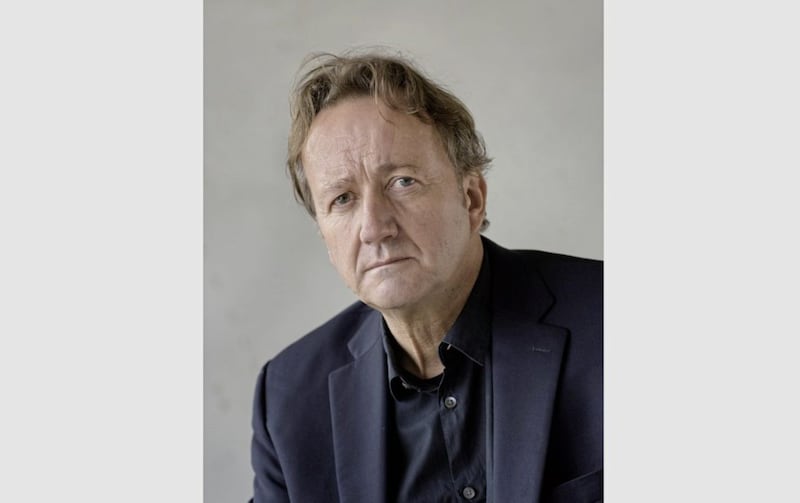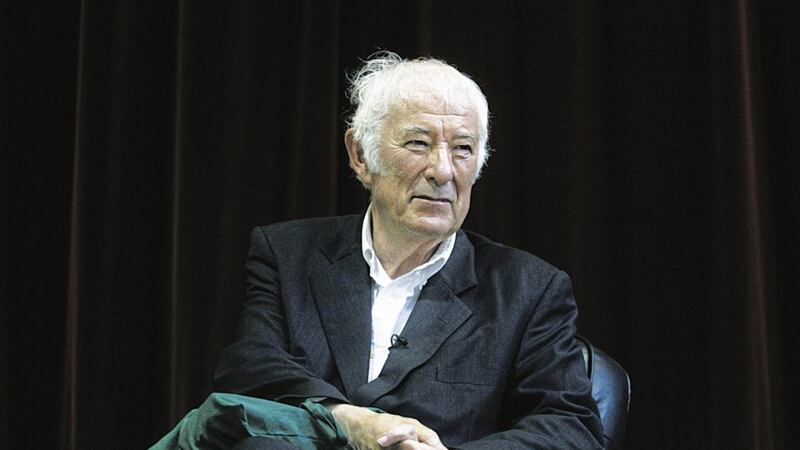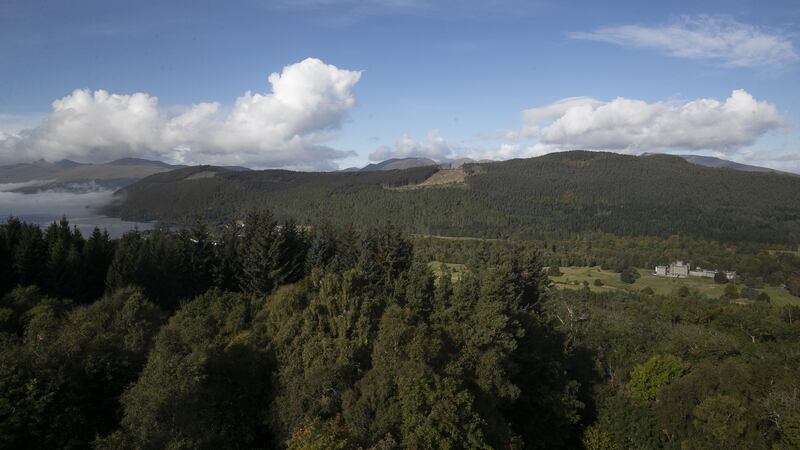PROFESSOR of Irish History and Literature at Queen Mary University of London and emeritus professor of Irish History at the University of Oxford, RF Foster published WB Yeats: A Life, his acclaimed biography of one of Ireland's greatest poets, in 2003.
It seems only appropriate that Foster's latest tome should cover Seamus Heaney, the late, great Bellaghy-born poet, playwright, teacher and critic, another Nobel Prize-winning Irish literary legend who followed (often reluctantly) in Yeats's footsteps and whose life and work continues to reverberate today, seven years after his death at the age of 74.
Heaney's final words "noli timere" – Latin for "do not be afraid" – became a much shared inspirational quote as Covid kicked in back in March, while current US presidential candidate Joe Biden is fond of quoting Heaney's line about making "hope and history rhyme" from his play The Cure at Troy.
Weighing in at an easily digested 206 pages plus foreword and appendices, RF Foster On Seamus Heaney is an altogether more compact and concentrated affair than the author's exhaustive two-volume treatment of Yeats. Part of Princeton University Press's Writers on Writers series, the book explores Heaney's work in relation to events in his life, his country and beyond while digging down into the roots of the widespread appeal which made him a beloved figure at home and abroad.
Foster himself has been a fan since reading Heaney's key collection North in 1975, recalling how it prompted "the authentic sensation of hairs standing up on my head". He knew the poet socially and had the privilege of witnessing his public speaking prowess first hand during Heaney's lectures while the Co Derry man was a visiting professor of poetry at Oxford in the early 1990s.
"I'd always wanted to write about Heaney's work and what it means to its readership," explains Foster of his new pocket-friendly book, which follows weightier publications including Modern Ireland: 1600-1972 and Vivid Faces: The Revolutionary Generation in Ireland, 1890-1923.
"I wanted to try and uncover why he made such an extraordinary connection with his readership in Ireland and globally.
"Heaney's poetry spoke to people in so many ways and it made them feel proprietorial about him. He was keenly aware of the dangers implicit in that sort of relationship and he was never going to be 'owned' by them or 'petted' by them – he would always keep that slight remove.
"But I also knew him a bit and I would never have seen him stray to impatience, bad temper or refusal faced with the kind of adulation which surrounded him. He was able to steer that course remarkably and I think the rock-like base of his family life and his marriage [to Marie Devlin] were part of that.
"It's very rare for an artist as great as Heaney to have that – it gave him enormous strength, I think."
Foster found having access to Heaney's personal papers, drafting notebooks and related correspondence in archives and collections such as those located at the National Library of Ireland and Emory University in Atlanta revealing.

Heaney's poems would often be painstakingly fettled, revised and pared down before being presented for publication, as the man who became known as 'Ireland's national poet' – like Yeats before him – was all too aware of the scrutiny his work would be subjected to.
Foster writes: "Heaney's public prominence set up a tension with his bedrock belief that the poet's vocation entailed an absolute need for privacy and independence – what Yeats had called 'the pure joy of things not indentured to any cause'."
"He always had a very strong sense of the necessity for an artist to keep that area of private investigation and private inspiration to his or her self," he explains.
"He was very strong on that. One of the themes of my book is his identification with the 'bird king', Sweeney, who changes shape and flits around and evades people – and while he's hailed in some places always tries to keep his individuation.
"There's those wonderful lines at the end of Sweeney Redivivus [from Heaney's 1984 collection Station Island], 'There I was, incredible to myself, among people far too eager to believe me and my story – even if it happened to be true'. That's Seamus's absolute voice there, I think.
"But at the same time, he knew that with great fame and with having the ear of the public comes a kind of great responsibility. He negotiated that very carefully; in that, as in much else, he reminds me of the position Yeats occupied in Irish life towards the end of his life."
Indeed, On Seamus Heaney explores why the northern literary great's relationship with his legendary southern forerunner was a complex and evolving affair.
"He was in some ways preoccupied by Yeats, though that came later," Foster tells me.
"As he says very clearly in Stepping Stones, the great book of interviews that Dennis O'Driscoll did with him, early in his reading career Yeats hadn't meant so much to him – it was really only when he was teaching in America at Berkeley in the 1970s that he began to look at the whole Yeatsian theme and influence in Irish writing.
"Just after that, he writes a fascinating essay called Yeats As An Example? about what Yeats meant to the Irish writer. As his own fame increased, and especially after he won the Nobel and was sort of hailed as 'the national poet', he had to face up to the parallels – but he was very very careful about negotiating them.
"What fascinated me more and more as I read more deeply into Heaney is the way that a spiritual dimension increasingly hovers around his poetic insights. I think he shared the fascination Yeats had with access to another world. He explores more and more that sense of 'speaking to the dead'."
Fans need look no further than the aforementioned Station Island collection – named for the site of the Lough Derg pilgrimage which Heaney undertook several times during his student days at Queen's University in the 1960s – for ample evidence of this. Foster describes the 1984 publication, in which Heaney pointedly explores his relationship with Ireland, the 'ghosts' of its literary past, its politics and specifically the ongoing Troubles, as "a kind of hinge in his writing life – as well as the hinge of my book".
"I became quite obsessed by Station Island and have read and re-read it," he admits.
As for how his own relationship with Heaney has been affected by the new book, the author reveals that "I think I revere the poetry even more now than when I began.
"I used to think the early work like Death of A Naturalist [1966] was sort of charming and pastoral and that he really hit this extraordinary stride with North. But now, having gone back, you can see where North came out of – and that the themes of violence and anger and history are already there.
"Having been immersed in the drafts and seeing what he rejects as well as what comes out of it, and seeing the absolute grace under pressure with which he lived a life that inevitably became a public life, I think all that increased both my admiration for the work and my affection for the man."
While we await Fintan O'Toole's comprehensive authorised biography of the late Nobel laureate, RF Foster's painstakingly researched and affectionately penned On Seamus Heaney offers an illuminating bite-sized refresher course on one of our greatest literary talents.
RF Foster On Seamus Heaney is available now, published by Princeton University Press.



